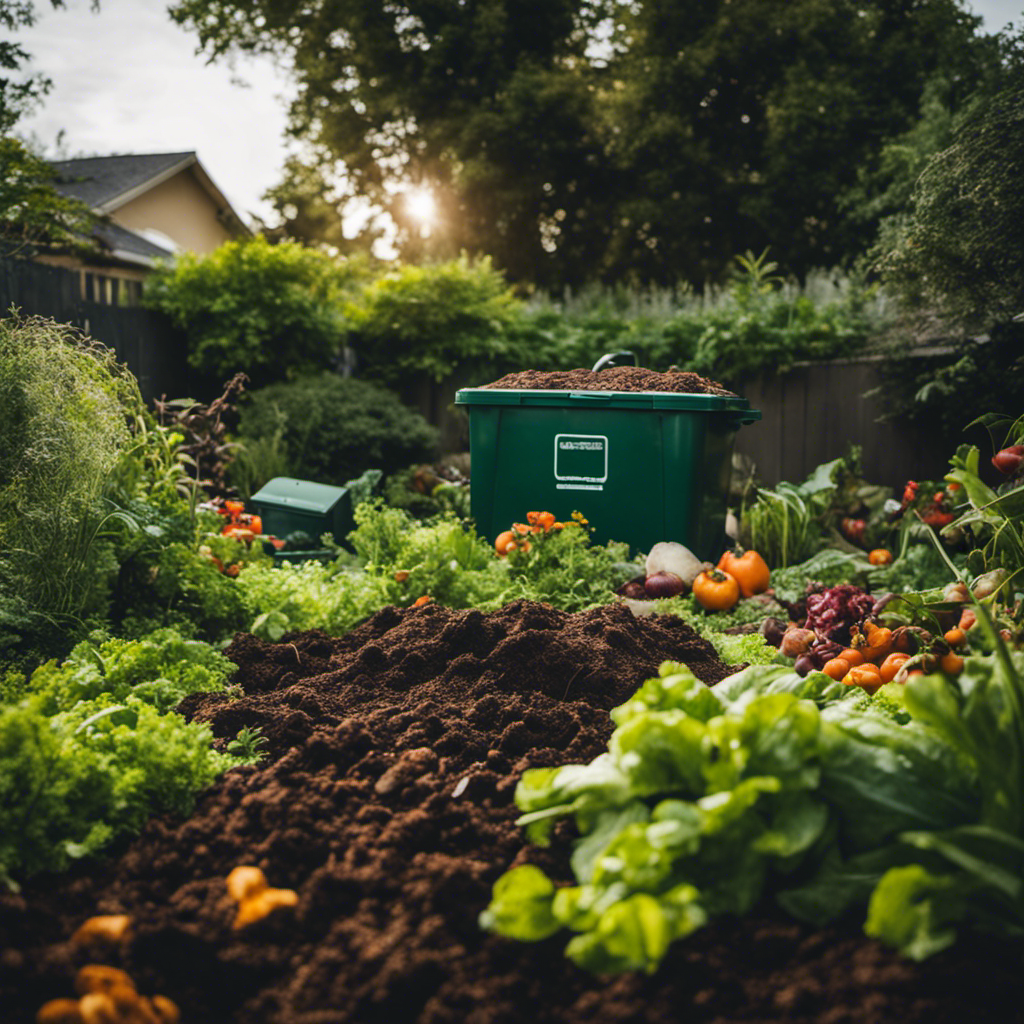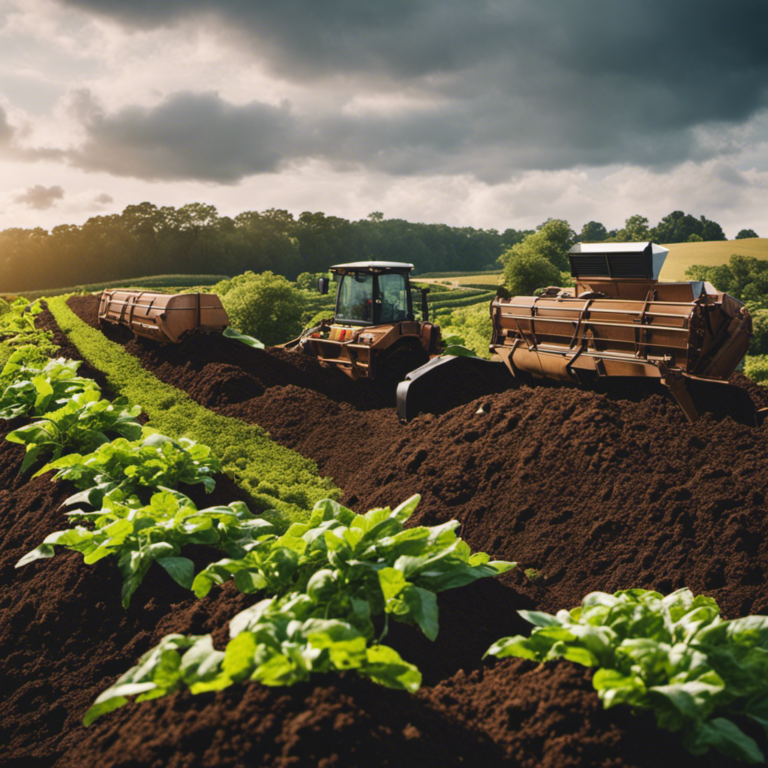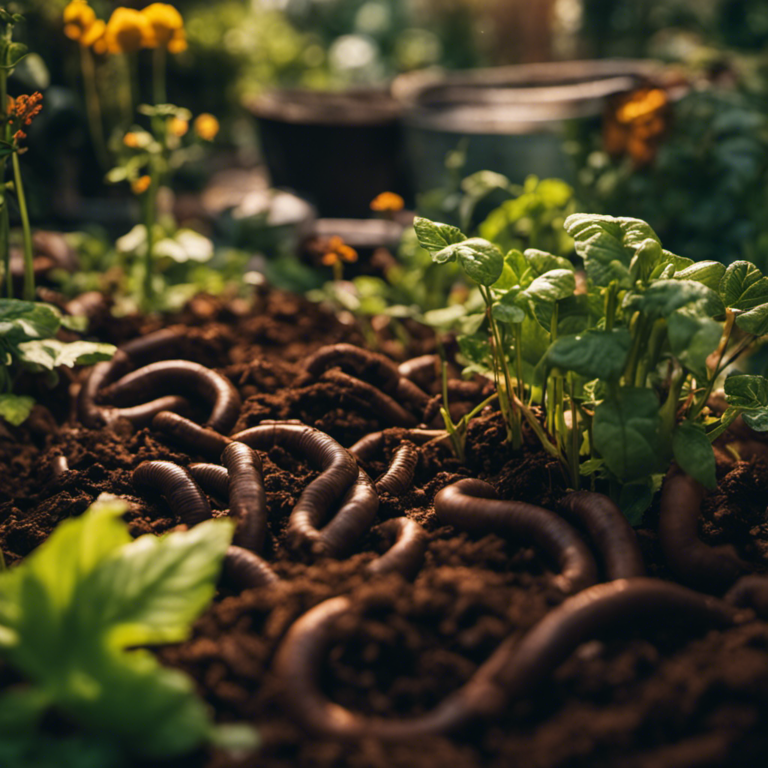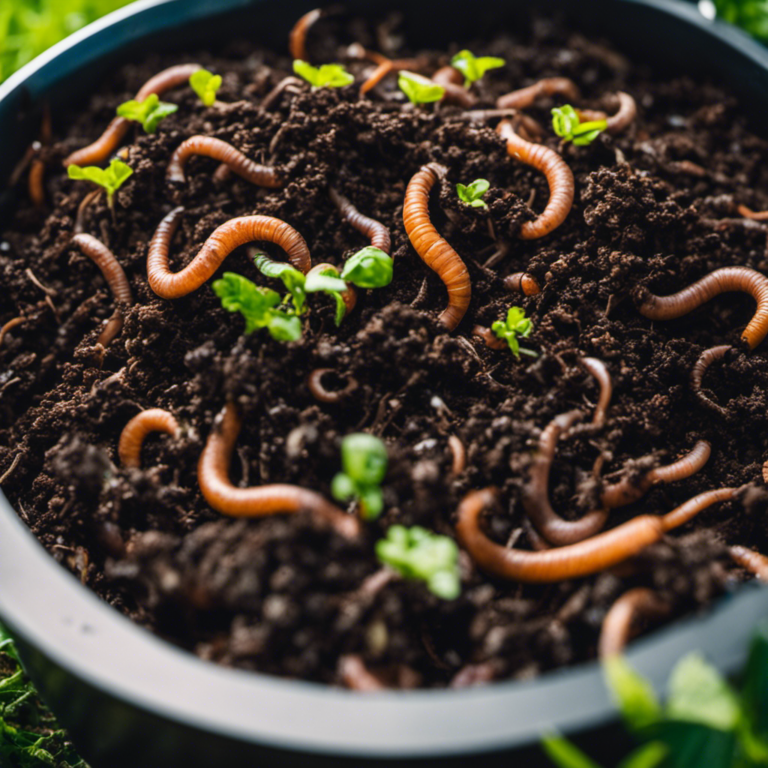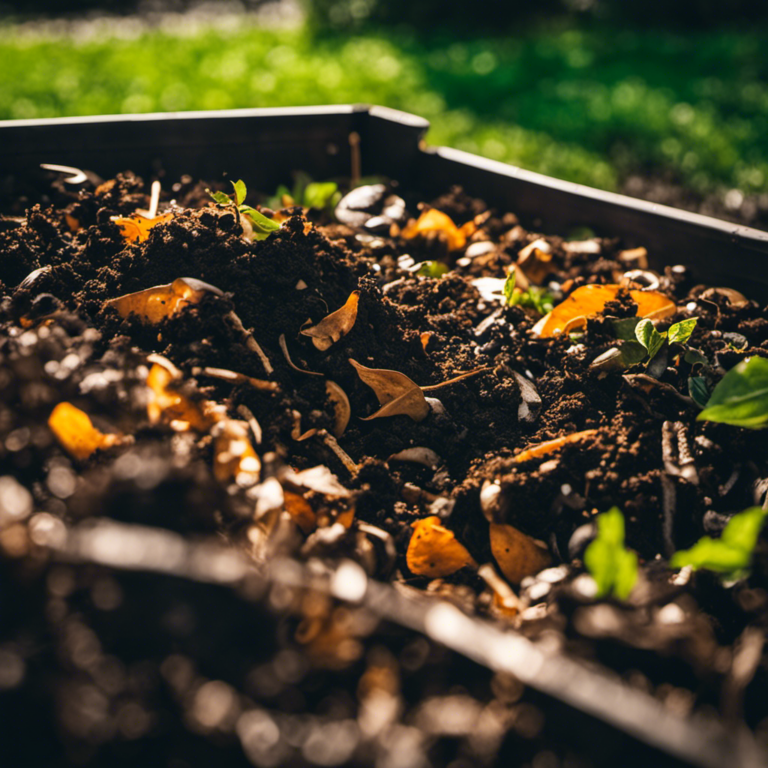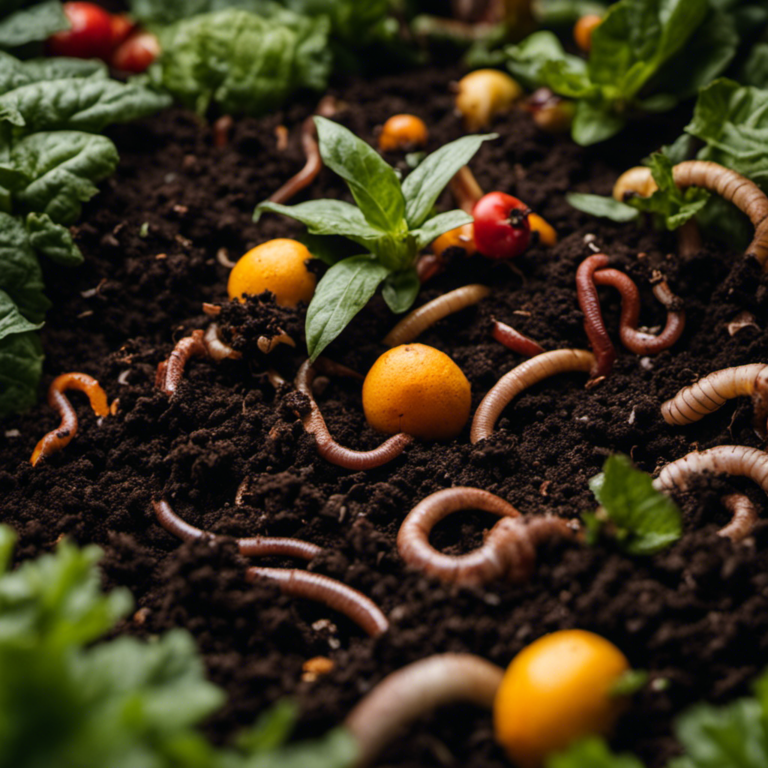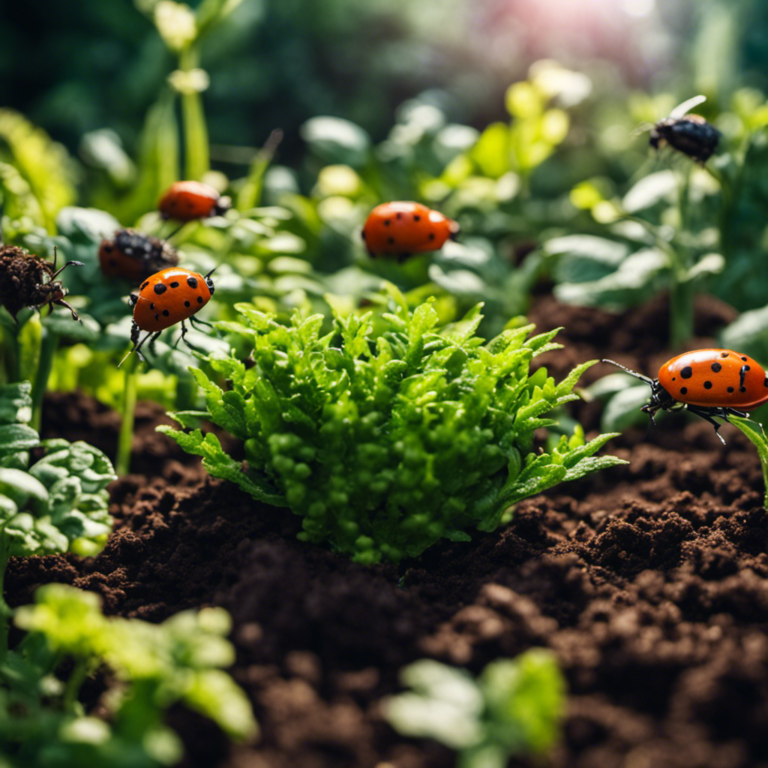Are you under the impression that composting is only for seasoned gardeners? Think again! In this beginner’s guide, I’ll show you how simple and advantageous organic composting can be.
We’ll discuss the necessary materials, different methods to experiment with, and troubleshoot common issues.
Prepare to transform your kitchen scraps and yard waste into valuable nutrients that will nourish your plants and contribute to a healthier environment.
Let’s get started!
Key Takeaways
As we reach the end of this beginner’s guide to organic composting, I can’t help but feel excited and optimistic. Composting is a dynamic and ever-changing process that offers numerous opportunities to create nutrient-rich soil and reduce waste. Whether you have years of gardening experience or are just starting out, organic composting allows you to connect with nature and make a positive impact. So, let’s prepare to delve into the secrets of this incredible process and get our hands dirty. Happy composting!
What Is Organic Composting
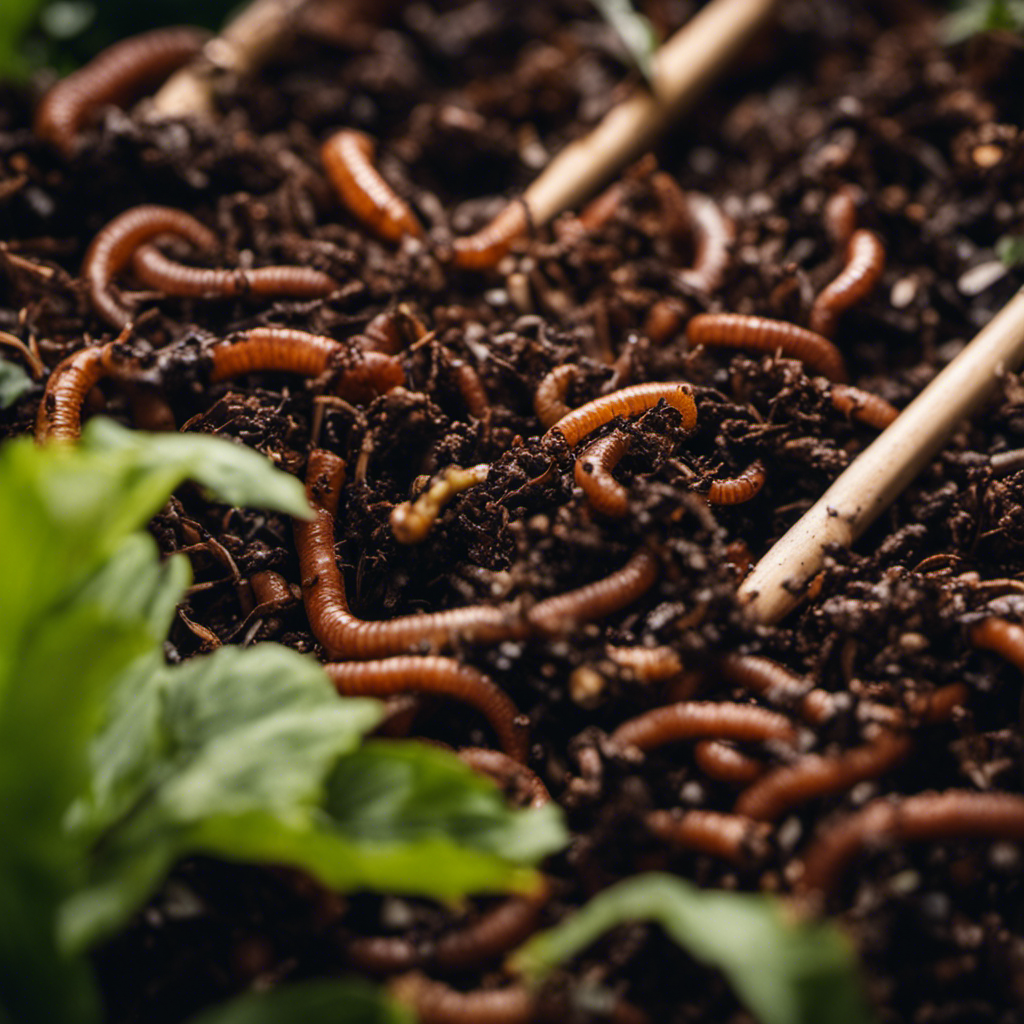
What Is Organic Composting?
Organic composting is a natural and sustainable method of decomposing organic materials using heat, moisture, and microorganisms. It offers a way to recycle organic waste and transform it into nutrient-rich compost. The composting process involves four essential elements: carbon-rich materials (browns), nitrogen-rich materials (greens), water, and oxygen.
To begin composting, you’ll need a compost bin or pile. Layering the materials is crucial for proper decomposition. Start with a layer of browns, such as dried leaves or straw, followed by a layer of greens, like kitchen scraps or grass clippings. Maintaining a balance between carbon and nitrogen-rich materials is important to facilitate decomposition.
Water is necessary to keep the compost moist, but avoid over-saturation. Regularly monitor the moisture level and adjust as needed. Turning or mixing the compost pile ensures proper aeration, providing enough oxygen for the microorganisms to carry out the decomposition process effectively.
Over time, the organic waste will decompose, resulting in nutrient-rich compost. This compost can be used to enhance soil fertility, promote plant growth, and reduce the reliance on chemical fertilizers.
By understanding and actively participating in organic waste decomposition, we contribute to a more sustainable and environmentally-friendly future. Additionally, we can benefit others by providing them with healthy, thriving plants and gardens.
Benefits of Organic Composting
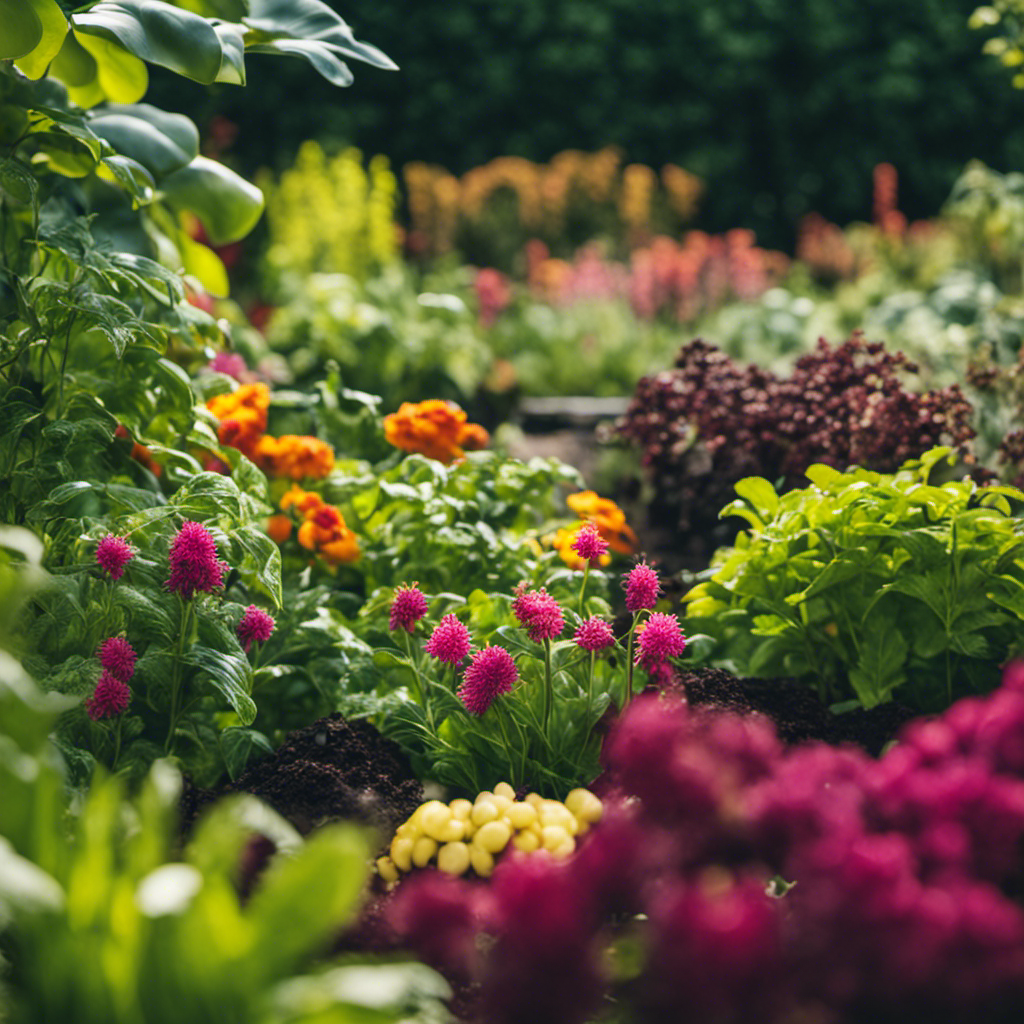
Benefits of Organic Composting
As a beginner in organic composting, I’ve discovered numerous benefits that come with this sustainable practice. Not only does organic composting help reduce waste and protect the environment, but it also has a significant impact on soil health. By incorporating organic compost into the soil, it enriches it with essential nutrients and microorganisms, promoting healthy plant growth and reducing the need for chemical fertilizers.
Advantages of Using Organic Compost for Soil Health
Enhances soil structure: Organic compost improves soil structure by adding organic matter, which helps the soil hold water and nutrients more effectively.
Increases nutrient availability: The incorporation of organic compost into the soil increases the availability of nutrients for plants, ensuring they receive the essential elements needed for healthy growth.
Improves water retention: Organic compost helps the soil retain water, reducing water runoff and the need for excessive irrigation.
Promotes beneficial microbial activity: The organic matter in compost acts as a food source for beneficial microorganisms, creating a thriving ecosystem in the soil that supports plant health.
Suppresses plant diseases: By introducing beneficial microorganisms, organic compost helps suppress harmful pathogens, reducing the need for chemical pesticides and creating a safer environment for both plants and humans.
In conclusion, organic composting offers numerous benefits for soil health. It enhances soil structure, increases nutrient availability, improves water retention, promotes beneficial microbial activity, and suppresses plant diseases. By incorporating organic compost into our gardening practices, we can contribute to the health of our soil and the overall sustainability of our environment.
Essential Materials for Organic Composting
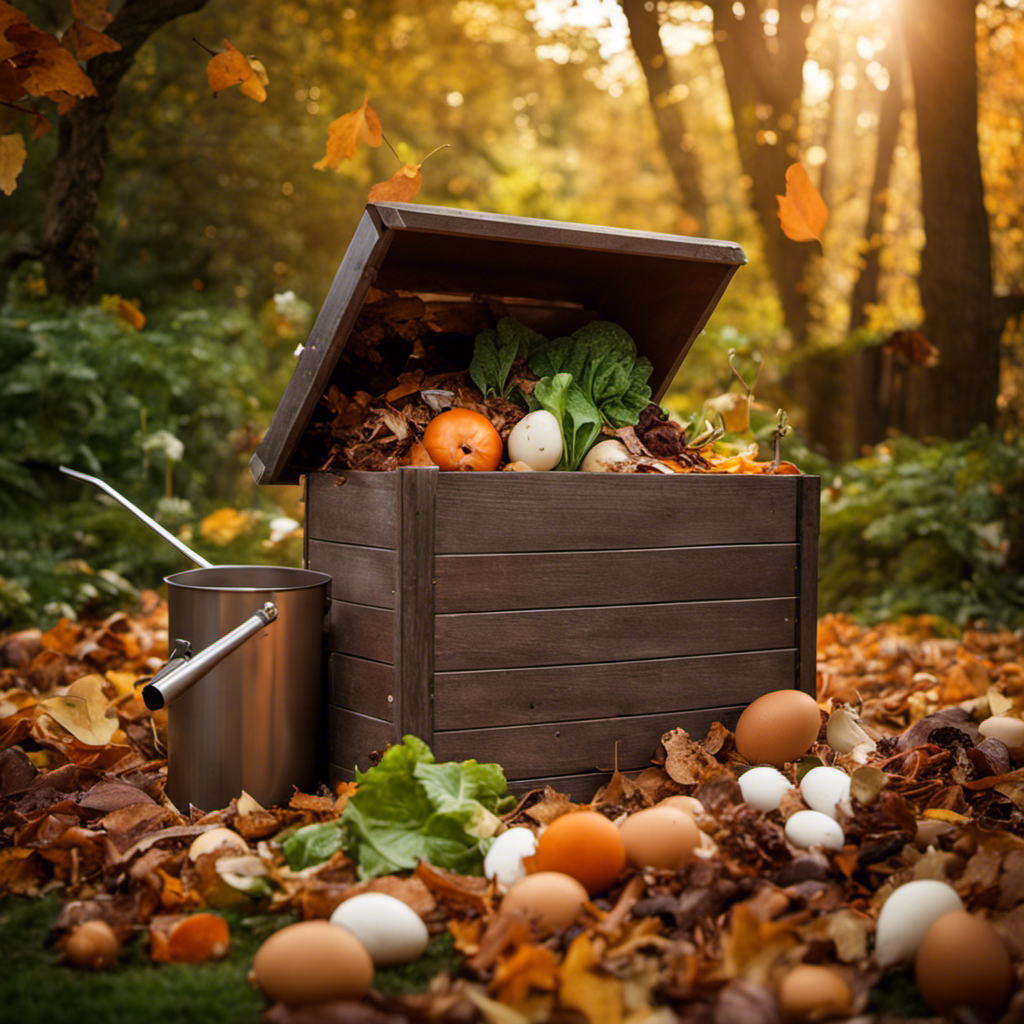
To start organic composting successfully, it’s important to gather the necessary materials for the process. Here are five essential items you’ll need:
-
Composting Containers: Choose a container to hold your composting materials. You can use a traditional compost bin, a compost tumbler, or even make a simple homemade container from recycled materials. Pick one that suits your space and requirements.
-
Organic Waste: Collect organic waste like fruit and vegetable scraps, coffee grounds, eggshells, and yard trimmings. Avoid adding meat, dairy, or oily foods as they can attract pests.
-
Browns: Browns refer to dry organic materials such as dried leaves, straw, or shredded paper. These materials provide the necessary carbon for the composting process.
-
Water: Composting organisms require moisture to break down the organic matter. Keep your compost pile moist but not overly wet. If it feels dry, add water using a watering can or hose.
-
Aeration Tools: To ensure proper air circulation, you’ll need tools to turn and mix the compost. This can be a pitchfork, a compost aerator, or even a simple garden shovel.
By having these essential materials ready, you’ll be well-prepared to embark on your organic composting journey.
Remember, composting is a natural process that benefits both your garden and the environment. So gather these materials and get ready to transform your organic waste into nutrient-rich compost for your plants.
Happy composting!
Different Methods of Organic Composting
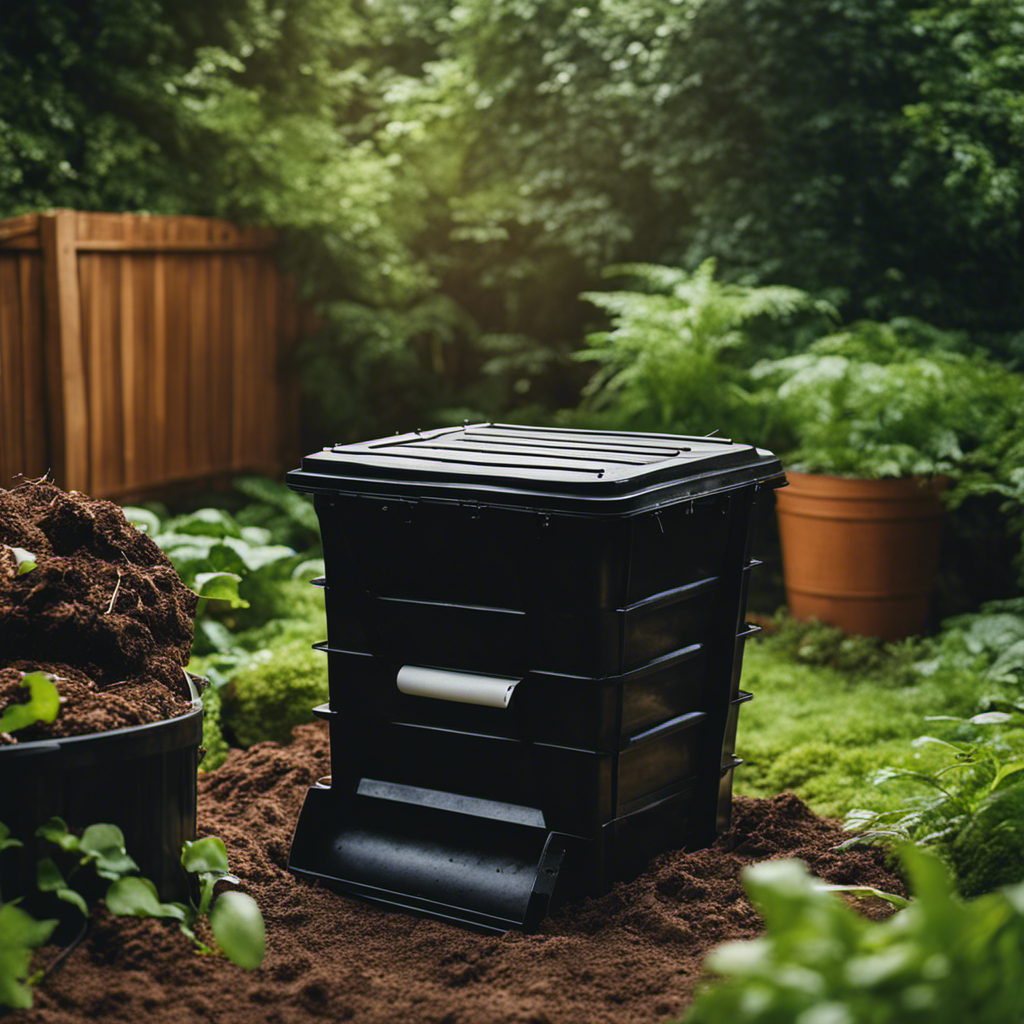
When it comes to organic composting, I personally prefer using a traditional compost bin. This method is simple yet effective and can be easily implemented in any backyard or garden. The key to successful composting lies in creating the right conditions for the organic waste to decompose.
One commonly used method is aerobic composting, which involves providing oxygen to the microorganisms responsible for breaking down the organic matter. This can be achieved by regularly turning the compost to ensure proper aeration.
Another method is vermicomposting, which utilizes the assistance of worms to accelerate the decomposition process. The worms consume the organic waste and produce nutrient-rich castings that serve as a natural fertilizer. Vermicomposting is particularly suitable for those with limited space or indoor composting needs.
Regardless of the method you choose, it’s important to maintain a balanced mix of organic materials. This includes incorporating both green waste, such as fruit and vegetable scraps, and brown waste, such as leaves and cardboard.
Troubleshooting Common Composting Issues
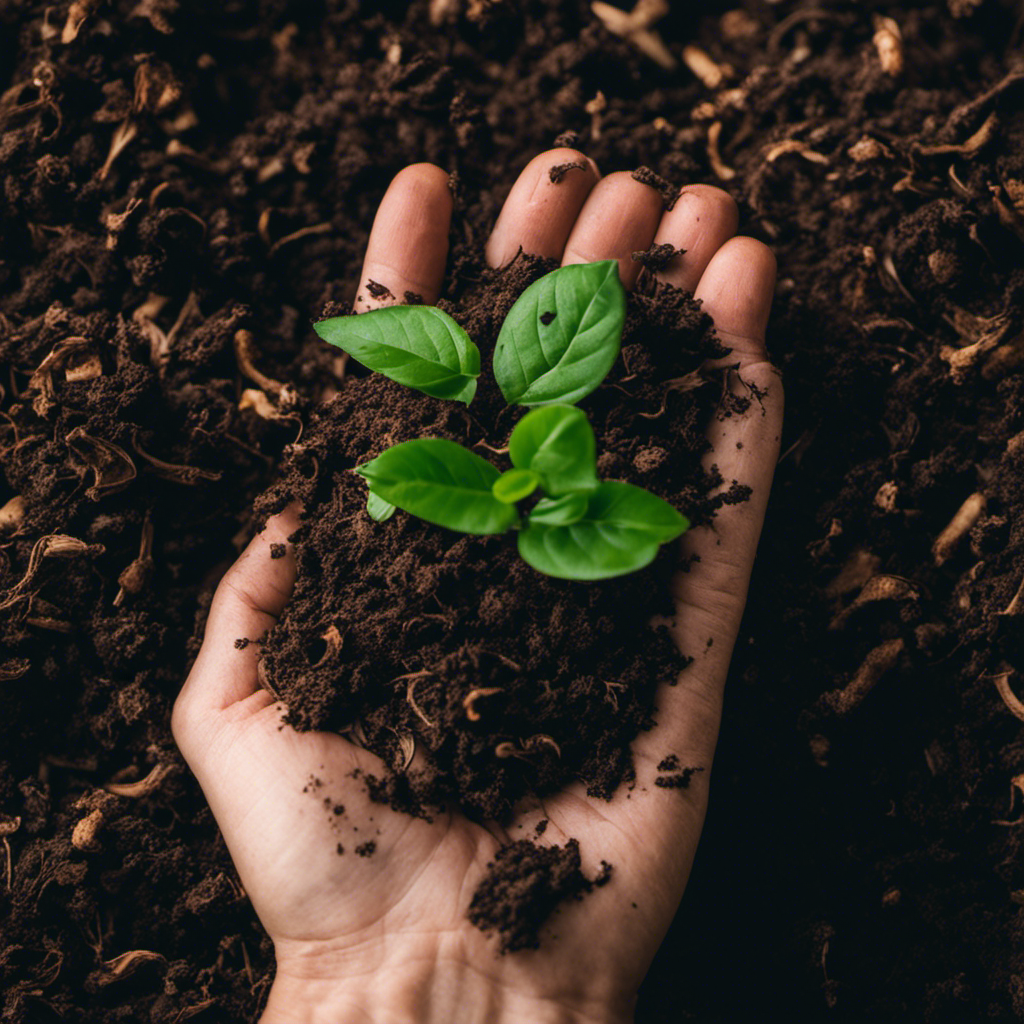
When dealing with common composting issues, it’s crucial to address them promptly to ensure the successful decomposition of organic waste. Here are some troubleshooting tips to help you handle two common problems: composting odors and attracting pests.
-
Composting Odors:
-
Adjust the carbon-to-nitrogen ratio: If your compost has an unpleasant smell, it may be due to an imbalance of carbon-rich and nitrogen-rich materials. To restore the balance, add more brown materials like dried leaves or shredded paper.
-
Turn the compost pile: Poor aeration can lead to odors. Regularly turning the pile will increase airflow and prevent anaerobic conditions that cause foul smells.
-
Avoid adding certain materials: Some items, such as meat, dairy, and oily foods, can produce strong odors. Exclude these from your compost pile to minimize unpleasant smells.
-
Attracting Pests:
-
Bury food waste: To deter pests like flies and rodents, bury food scraps deep within the compost pile. This will make it less accessible and less enticing for them to feast on.
-
Use a compost bin with a secure lid: Investing in a compost bin with a tightly fitting lid can help keep pests out. Ensure there are no gaps or openings that critters can squeeze through.
By following these troubleshooting tips, you can overcome common composting issues and maintain a healthy and odor-free compost pile.
Happy composting!
Conclusion
As we come to the end of this beginner’s guide to organic composting, I can’t help but feel excited and hopeful.
Composting is a dynamic and ever-changing process that offers countless opportunities to create nutrient-rich soil and reduce waste.
Whether you have years of gardening experience or are just beginning, organic composting allows you to connect with nature and make a positive impact.
So, let’s get ready to dig in, roll up our sleeves, and uncover the secrets of this incredible process.
Happy composting!
